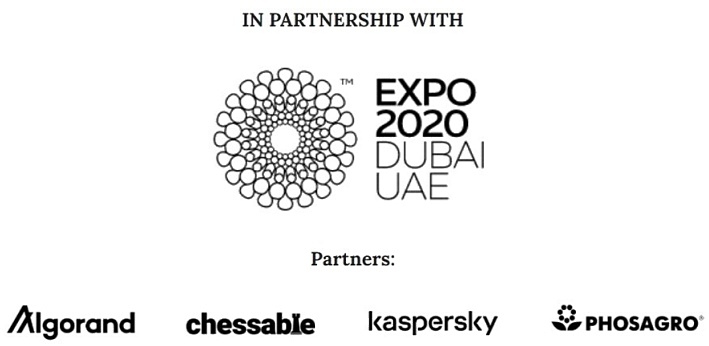A Special Sense of Occasion
On November 26th, the duel for the ultimate chess title will begin, between favourite and reigning champion Magnus Carlsen of Norway, and challenger and fascinating rival, Ian Nepomniachtchi of Russia. The clash should reach the biggest and widest audience ever, and esteemed pundits are predicting the match to deliver more excitement than ‘just’ a battle for the chess crown and title of World Champion.
The event has been postponed a year due to the inevitable logistical complications of the global pandemic. During the lengthy wait to produce a challenger and arrange the match safely, chess has enjoyed a new surge of popularity.
As the world went remote and online, the game flourished due to its natural affinity for digital competition. The timing and success of the Netflix series The Queen’s Gambit has given the general public an unprecedented level of interest and sympathy for the subtle yet brutal mental combat involved.
If the experts are right, the Carlsen-Nepomniachtchi encounter has the potential to be a memorable occasion, and captivate viewers eager for both chess content, and human drama.
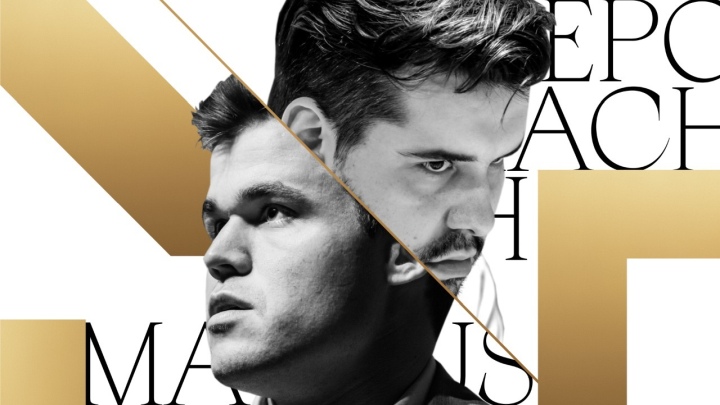
The odds
Carlsen’s credentials make him an undeniable favourite: He won the title by dethroning India’s Vishwanathan Anand in 2013, and has defended it three times since. Perhaps more daunting, and perhaps also closer to his heart, the Norwegian has been the top ranked player for over a decade now, and both his baseline and peak rating levels during this period are unprecedented.
In the case of a deadlocked match – which has happened in the previous two title defences vs. Sergey Karjakin (Russia) and Fabiano Caruana (USA) – a tiebreak series of faster, ‘non-classical’ games will result. Carlsen also has eight world titles at quicker disciplines (3 rapid, 5 blitz), and has held all three titles simultaneously, twice.
When asked to predict the outcome of the match, a common line of reasoning lists up the champion’s merits and concludes that if you had to place a bet, it would be on Magnus; followed by a pause and a long ‘But…’
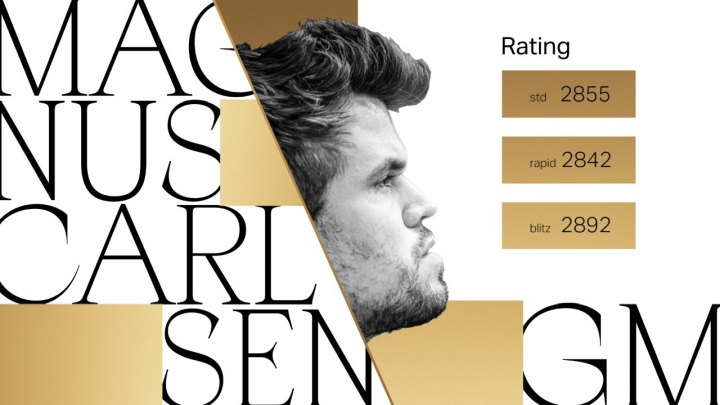
The X factors
The players have history. Nearly 20 years ago they were fierce rivals for world youth crowns. Ian took three consecutive European titles, winning the Under-10 and then the U-12 twice. In 2002 Ian and Magnus duelled for the European and World U-12 championships, and the Russian also took the latter, on tie-break.
This early rivalry set the stage for the obvious dramatic narrative around the match. Not only will this contest be a chance for ‘Nepo’ to redeem his faded early promise at the very highest level, the mutual respect that was forged in their early meetings resulted in a lasting friendship. In the intervening years, they have even worked together, with Ian providing assistance at a few major events, including a Carlsen-Anand title bout.
Although Nepomniachtchi’s route to the very top of the world elite was a bit slower and meandering, his obvious talent, and rather unusual skill set, have never been in doubt. He has extended his positive score in sedate, classical chess against Carlsen into their adult meetings. Ian is widely viewed as having a complex, creative style tailored to cause Carlsen problems, and is capable of applying relentless practical and psychological pressure by playing at high speed.
The Russian’s history and head-to-head numbers may not mean much in the unique format of a pressure-cooker 14-game marathon, but coupled with his natural self-confidence, it should afford him an inner calm that no other player can boast against the champ.
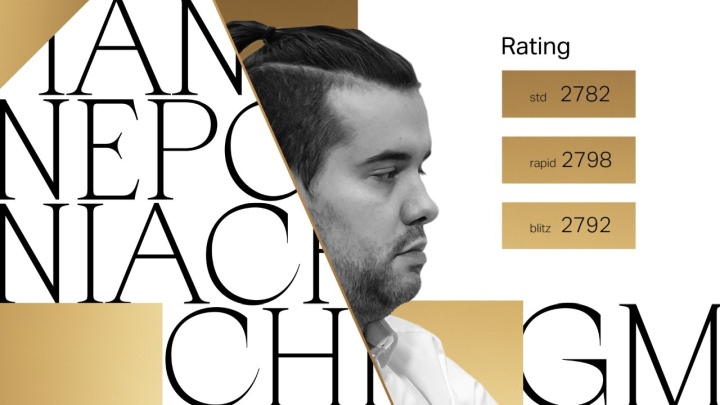
Showing up
After the long ‘But…’ and factoring in the intangibles, the verdict tends to be a sense of anticipation and excitement. Anand remarked that he felt a key factor would be the challenger’s level of preparation.
From recent interviews, and even to the naked eye, it is safe to assume that Ian is fully embracing his opportunity. He has described his recent existence as one long training camp, and besides the intense chess preparation ‘Nepo’ is also visibly lighter and fitter, tangible evidence that he is preparing for every aspect of the coming fight.
Another ex-world champion, the great Garry Kasparov, touched on a similar theme, but from the other direction. He felt that for the match to be predictable, Magnus simply had to play ‘to his full capacity’ – before admitting that he was not confident this would happen, since Magnus had shown increasing signs of vulnerability, especially in recent title defences.
Swings and stamina
The champion has vowed to deliver, and in no uncertain terms. Carlsen has declared that his goal is to be back at peak physical and chess form for the match.
Anand, who will be the official FIDE match commentator in Dubai, has also previewed the match by dissecting Carlsen’s qualities, something which is of special interest given that ‘Vishy’ acquired expert insight through back-to-back title bouts against the Norwegian.
Speaking to Ilya Levitov on YouTube, Anand made two particularly interesting observations when assessing the dynamics of the match. After the standard mention of Nepo’s rare ability to occasionally drag Magnus into tactical danger, Anand compared their swings, noting that while they can be close when both are playing at their peak powers, Carlsen’s lows are much higher than Ian’s dips in form. This recalls a wise Caruana remark about real success not being found through raising ceilings, which occurs as a natural part of improvement, but by raising floors and ensuring one’s slumps are never severe.
Then, returning to what I long felt could be a decisive factor in the upcoming duel, Vishy highlighted the champion’s tremendous physical strength and stamina, and how he consistently couples this with a tireless drive to play positions to death in search of a win. As an afterthought, and perhaps with empathy, Anand also wondered if Magnus could be motivated to burn so fiercely in a fifth title match…
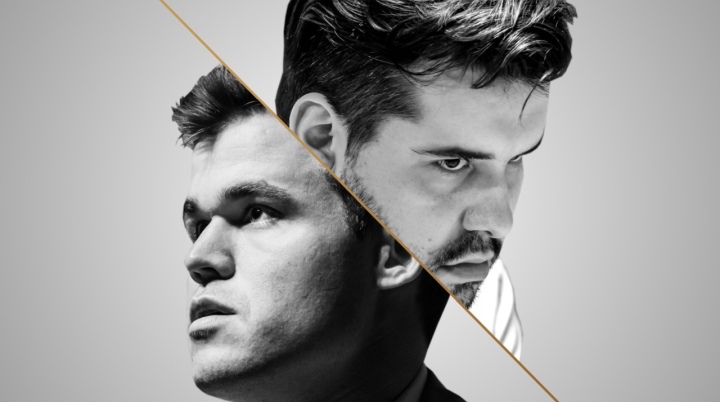
Game? Sport? Art? Science?
This reminds me of a classic discussion, about how players actually view the essence of chess. At this level, I think we can dismiss ‘game’ as belittling. In former times, there were always players who would argue strongly for chess as art, or at the very least for art to be an important component. The advent of engine intervention has probably made the choice of science an increasingly compelling element; but I think there is little doubt that chess as sport is what most top practitioners would say today, and I know that is how Magnus views it.
Norwegian journalist and Magnus biographer Arne Danielsen wrote an intriguing match book from Chennai with Indian writer Sriram Balasubramanian on Anand-Carlsen I, called The Wizards. This unique volume examined a title match through interviews with families, friends and advisors, and discussed the impacts of psychological, philosophical and spiritual factors, and a remarkable minimum of chess. And while investigating topics like harmony, momentum and artistry makes for fascinating reading and discussion, it has to be noted that sceptical Magnus sees the game as a battle, and the associated decisions to be made as pragmatic.
Chess is …
When you learn that Ian was a top level cybergamer, who refocused on chess just before the massive boom in e-sports, one could assume that he, despite what many people might see as a more romantic chess style, also views chess primarily as struggle.
In an interview with Mikhail Kuznetsov of Match TV, translated by Colin McGourty, Nepomniachtchi tended to deal with questions with a mischievous sense of humour, revealing a little, but never too much. Again the subject of physical training came up, and after confessing to an exercise regimen, he recalled hearing that in former times players were advised to fatten up in advance to prepare for the impact of the gruelling ordeal.
When I had the chance to ask Magnus if he viewed his accumulated experience as his biggest edge in this match, he gave the reply that has become a kind of banner for hyping this fight: “No, my biggest advantage is that I am better at chess.”
This is the kind of blunt confidence champions are entitled to – but it also raises the stakes and obligations. Fans of the game don’t have long to wait – and must only hope that the best of both players turns up in Dubai. And for the next few weeks at least, chess is … deadly serious.
Official website of FIDE World Championship Dubai 2021
